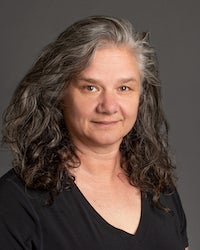
Office: MB 140-B
(208) 426-2432
jmead@boisestate.edu
About
I received my PhD in Mathematics from Arizona State University in 1998, and consequently held a postdoc in the College of Oceanic and Atmospheric Sciences at Oregon State University. My collaborations in the Geosciences continued as a Mathematics faculty member at Boise State University starting with and Interdisciplinary Grant in the Mathematical Sciences from the National Science Foundation (NSF) where I was a member of the Boise State Geoscience department for one year, and continues today with NSF funding from Computational Mathematics to develop Joint Inversion Algorithms in Geophysics.
Ill-posed inverse problems arise in many applications where data are combined with mathematical models in order to build better predictive models. My current research in inverse methods is mainly applied to problems in the Geosciences, but also to more general imaging, signal processing and machine learning problems. For these problems, I have developed statistical tests for regularization parameter selection and uncertainty quantification in least squares and total variation regularization.
Computational and applied math at Boise State University
Selected products
- Domenzain, Bradford, Mead, Joint inversion of full-waveform GPR and ER data, Geophysics, 2020
- Mead and Ford, Joint inversion of compact operators, Journal of Inverse and Ill-posed Problems, 2020
- Mead, Chi-squared test for total variation regularization parameter selection, Inverse Problems & Imaging, 2020
- Hetrick and Mead, Geophysical imaging of subsurface structures with least squares estimates, Inverse Problems in Science and Engineering, 2018
- Mead and Hammerquist, Chi-squared tests for the choice of the regularization parameter in nonlinear inverse problems, SIAM Journal on Matrix Analysis and Applications, 2013
Selected courses taught
- Math 588 – Inverse Theory
- Math 565 – Numerical Methods I
- Math 566 – Numerical Methods II
- Math 365 – Introduction to Computational Math
- Math 301 – Introduction to Linear Algebra